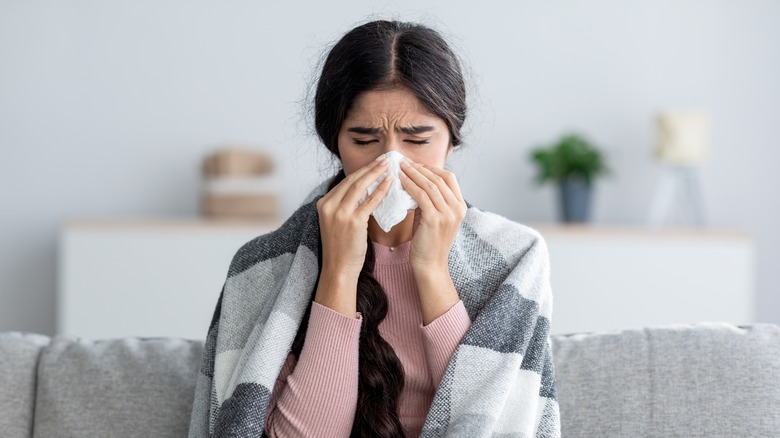How The Flu Shot Affects Your Body
The flu shot is a vaccine that helps protect against the influenza virus. It is typically given as an injection in the arm, but can also be given as a nasal spray. The flu shot is usually given to people who are at high risk of developing serious complications from the flu, such as young children, older adults, pregnant women, and people with certain chronic medical conditions.
When you get a flu shot, the viruses in the vaccine stimulate your body's production of antibodies. (via Cedars Sinai). These antibodies help protect you against infection with the viruses that are in the vaccine. It takes about two weeks for your body to produce these antibodies. Most people will experience some side effects after getting the flu shot, which is normal as your body creates antibodies to protect you from the actual flu virus. These symptoms typically include a sore arm, redness or swelling at the injection site, and a low-grade fever (via The CDC).
The flu shot is generally safe for most people, but there are some rare side effects that can occur. These include allergic reactions, such as hives or difficulty breathing, and more serious reactions, such as neurological problems or inflammation of the blood vessels. If you experience any of these side effects after getting a flu shot, you should seek medical attention immediately. The flu shot is the best way to protect yourself and your loved ones from the influenza virus.
How the flu affects your body
The influenza virus is an airborne virus that enters the body through the nose or mouth. It then travels down to the lungs where it multiplies. The virus then attacks the body's respiratory system, causing inflammation of the nose and throat (via Mayo Clinic). This can lead to breathing difficulties, a high fever, a headache, and general aches and pains. In severe cases, influenza can lead to pneumonia, which can be fatal in some people. The flu is more than just a cold; it can be a very serious illness, particularly in young children, the elderly, or those with underlying health conditions. That's why it's important to get vaccinated against the flu every year.
If you do get sick with the flu, there are some things you can do to help ease your symptoms and speed up your recovery. Rest is important, so try to get as much sleep as possible (via The CDC). Drinking plenty of fluids will also help to prevent dehydration. You can take over-the-counter painkillers such as paracetamol or ibuprofen to help relieve any aches and pains. And if you have a fever, it's important to drink lots of fluids and dress in light clothing to avoid overheating.


